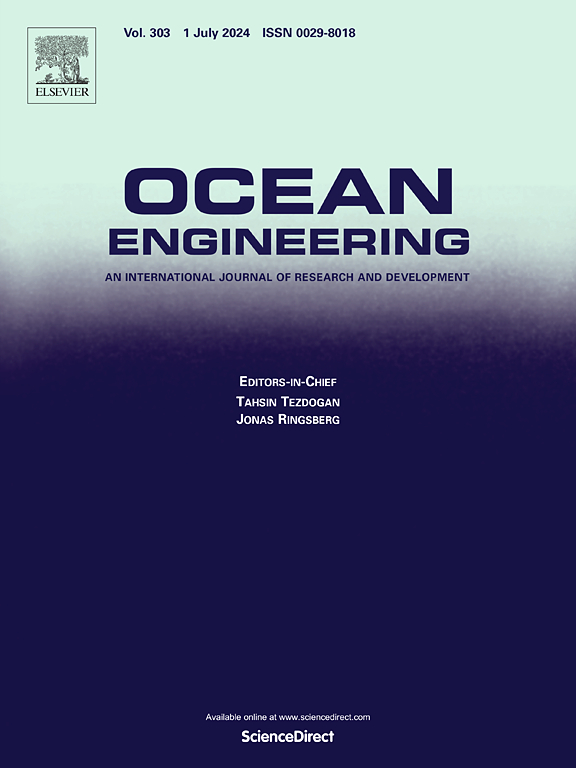Reinforcement learning-based fast-dual-tree RRT path planning for unmanned underwater vehicles
IF 5.5
2区 工程技术
Q1 ENGINEERING, CIVIL
引用次数: 0
Abstract
Rapidly-exploring Random Tree (RRT) algorithms are widely used in path planning of Unmanned Underwater Vehicles (UUVs) due to their high efficiency in exploring high-dimensional spaces. However, their effectiveness and practical applicability are limited by the high computational cost associated with kinodynamic constraints and complex environments. To address these challenges, this paper proposes a reinforcement learning-based fast-dual-tree rapidly-exploring random tree (RL-FDTRRT) algorithm to generate feasible and optimal paths. The proposed planning framework consists of a workspace tree and a state space tree. The workspace tree is guided by a reinforcement learning-based obstacle avoidance strategy to reduce redundant sampling. An improved experience replay strategy is integrated into the training process to accelerate convergence of the reward function. With the workspace tree serving as the heuristic tree, the state-space tree employs a motion-reachability-based parent-seeking strategy to compute executable and optimized paths that satisfy the motion constraints of UUVs. Additionally, a bias factor is introduced during the sampling process to ensure the probabilistic completeness of the algorithm. Finally, the proposed algorithm is validated on both a two-dimensional lake map and a three-dimensional ocean map. Experimental results demonstrate that the RL-FDTRRT algorithm outperforms representative RRT-based algorithms in terms of path feasibility and computational efficiency.
基于强化学习的水下无人潜航器快速双树RRT路径规划
快速探索随机树(RRT)算法以其对高维空间的高效探索,被广泛应用于无人潜航器的路径规划中。然而,它们的有效性和实际适用性受到高计算成本和复杂环境的限制。为了解决这些挑战,本文提出了一种基于强化学习的快速双树快速探索随机树(RL-FDTRRT)算法来生成可行和最优路径。提出的规划框架由工作空间树和状态空间树组成。工作空间树采用基于强化学习的避障策略,减少冗余采样。在训练过程中引入了一种改进的经验重放策略,以加速奖励函数的收敛。状态空间树以工作空间树为启发式树,采用基于运动可达性的寻父策略计算满足uuv运动约束的可执行路径和优化路径。此外,在采样过程中引入了一个偏差因子,以保证算法的概率完备性。最后,在二维湖泊地图和三维海洋地图上对算法进行了验证。实验结果表明,RL-FDTRRT算法在路径可行性和计算效率方面优于代表性的基于rrt的算法。
本文章由计算机程序翻译,如有差异,请以英文原文为准。
求助全文
约1分钟内获得全文
求助全文
来源期刊

Ocean Engineering
工程技术-工程:大洋
CiteScore
7.30
自引率
34.00%
发文量
2379
审稿时长
8.1 months
期刊介绍:
Ocean Engineering provides a medium for the publication of original research and development work in the field of ocean engineering. Ocean Engineering seeks papers in the following topics.
 求助内容:
求助内容: 应助结果提醒方式:
应助结果提醒方式:


